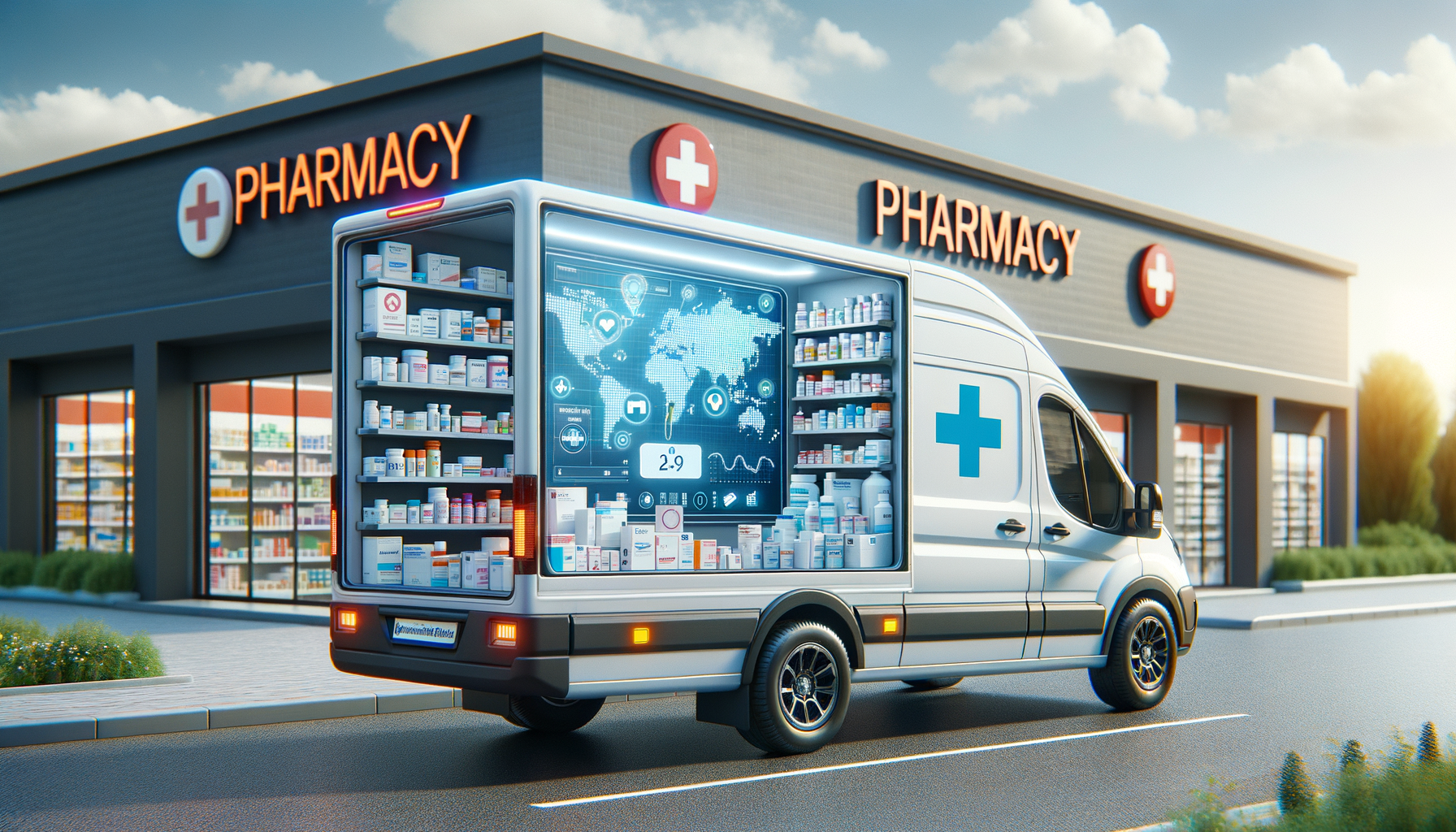
How to Become a Medicine Delivery Driver
Introduction to Medicine Delivery Drivers
In today’s fast-paced world, the role of a medicine delivery driver has become increasingly vital. As healthcare systems expand their reach, ensuring timely and safe delivery of medications is paramount. Medicine delivery drivers are the unsung heroes who bridge the gap between pharmacies and patients, ensuring that essential medications reach those in need promptly. This article delves into the journey of becoming a medicine delivery driver, highlighting the skills required, the challenges faced, and the steps involved in embarking on this career path.
The Role and Responsibilities of a Medicine Delivery Driver
Medicine delivery drivers play a crucial role in the healthcare logistics chain. Their primary responsibility is to transport medications from pharmacies to patients’ homes or healthcare facilities. This task requires a high degree of responsibility and attention to detail, as the delivery of incorrect or late medications can have serious consequences for patients.
In addition to ensuring timely deliveries, drivers must maintain the integrity of the medications. This involves adhering to specific storage and handling guidelines to prevent damage or spoilage. Drivers are also responsible for verifying delivery details, obtaining necessary signatures, and handling any discrepancies or issues that may arise during the delivery process.
Moreover, these drivers often serve as a point of contact between the pharmacy and the patient, providing a personal touch to the delivery service. They may need to communicate effectively with patients, addressing any concerns or questions regarding their medications. This aspect of the job requires excellent interpersonal skills and a compassionate approach.
Essential Skills and Qualifications
To become a successful medicine delivery driver, certain skills and qualifications are essential. Firstly, a valid driver’s license and a clean driving record are mandatory. Employers typically require drivers to have a high school diploma or equivalent, although some positions may prefer candidates with prior experience in delivery or logistics.
Attention to detail is crucial, as drivers must accurately follow delivery instructions and ensure the correct medications are delivered. Time management skills are also important, as drivers need to plan efficient routes and adhere to delivery schedules.
Furthermore, medicine delivery drivers must possess strong communication skills. They interact with pharmacy staff, healthcare professionals, and patients, requiring clear and effective communication. Additionally, a basic understanding of healthcare regulations and patient confidentiality is beneficial, as drivers handle sensitive medical information.
- Valid driver’s license
- Clean driving record
- High school diploma or equivalent
- Attention to detail
- Time management skills
- Strong communication skills
Challenges Faced by Medicine Delivery Drivers
While the role of a medicine delivery driver is rewarding, it comes with its own set of challenges. One of the primary challenges is navigating traffic and weather conditions. Drivers must be prepared to handle unexpected delays and plan alternative routes to ensure timely deliveries.
Another challenge is maintaining the security and integrity of the medications during transit. Drivers must be vigilant in preventing theft or damage to the medications, which requires constant attention and adherence to safety protocols.
Additionally, drivers may encounter challenging interactions with patients or healthcare staff. Addressing patient concerns or resolving delivery discrepancies requires patience, empathy, and effective problem-solving skills. Despite these challenges, many drivers find the role fulfilling, knowing that their efforts directly contribute to patient well-being.
Steps to Becoming a Medicine Delivery Driver
For those interested in pursuing a career as a medicine delivery driver, several steps can guide them on this path. The first step is obtaining the necessary qualifications, including a valid driver’s license and a clean driving record. Prospective drivers should also consider gaining experience in delivery or logistics, which can enhance their employability.
Next, candidates should research potential employers, such as pharmacies, healthcare facilities, or delivery companies specializing in medical logistics. Tailoring a resume to highlight relevant skills and experience can increase the chances of securing a position.
Once employed, new drivers typically undergo training to familiarize themselves with specific delivery protocols and healthcare regulations. Continuous learning and staying updated on industry trends can further enhance a driver’s career prospects.
- Obtain necessary qualifications
- Gain experience in delivery or logistics
- Research potential employers
- Tailor resume to highlight relevant skills
- Undergo training and continuous learning
Conclusion: A Career with Impact
Becoming a medicine delivery driver offers a unique opportunity to make a tangible difference in people’s lives. While the role presents challenges, it also provides immense satisfaction in knowing that your efforts contribute to the health and well-being of patients. By ensuring the safe and timely delivery of medications, medicine delivery drivers play an essential role in the healthcare system, making this a rewarding career choice for those with the right skills and dedication.


